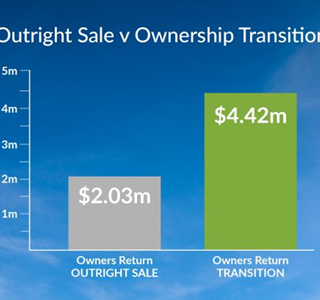Blogs
Read our blogs on business owner transition.
Read our blogs on business owner transition.

John, a successful entrepreneur in his early 60s, owned a thriving business with a substantial workforce. Having devoted many years to his venture, he had started exploring ways to step back and focus on other personal projects. He was ready to begin his transition and ease out of his business.
When Platform 1 approached John, we discussed the idea of a gradual exit by transitioning the business to a talented individual with the necessary capital. John found the idea intriguing but mentioned that Fred, his competent General Manager , had expressed interest in buying into the business. Being a fair and considerate leader, John wanted to give Fred the opportunity to explore the possibility.
We asked John whether Fred met the three essential criteria for a strong business partner: Capability, Capital, and Compatibility. While John was confident about Fred's capability and compatibility, he was uncertain about Fred’s financial capacity. Fred owned a modest 3-bedroom home with a mortgage, and given the estimated value of the business, local property prices, and Fred's current salary, it seemed unlikely that Fred could secure sufficient capital. We shared our concerns with John but respected his decision to allow Fred time to visit the bank and assess his options.
Unfortunately, progress was slow. Over time, external challenges began to mount. The market took a downturn, the business faced increasing difficulties, and John experienced health issues that further distracted him from his exit plan. Despite staying in touch with John, the momentum faded, and Fred had still not advanced his discussions with the bank. Eighteen months passed before Fred finally approached the bank, only to confirm our initial suspicion: he could not afford to buy into the business, even at a minimal level.
Reflecting on the delays, John admitted, “I wish I had started the process with you 18 months ago.”
Sadly, more than two years after our initial conversation, the business ceased to exist.
Key Lessons from This Story:
Procrastination can be costly, not just in lost time but in missed opportunities to secure the future of your business. If you're considering an exit plan, start now to ensure the best outcome for you and your business.
About the Author
Mike Warmington is a Director of Platform 1 NZ Ltd who specialise in using executive search techniques to find people with capability and capital for Mid-Market business owners wanting to transition out of their business.

